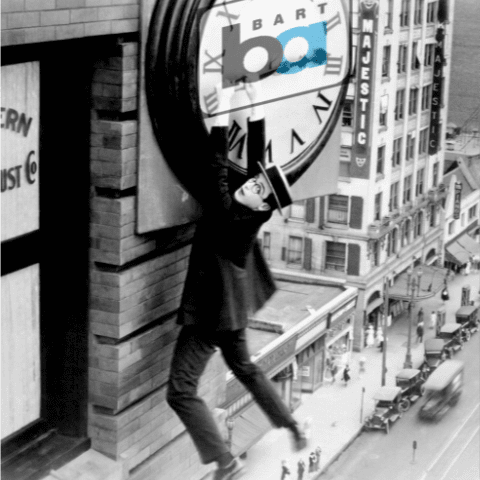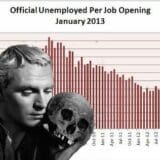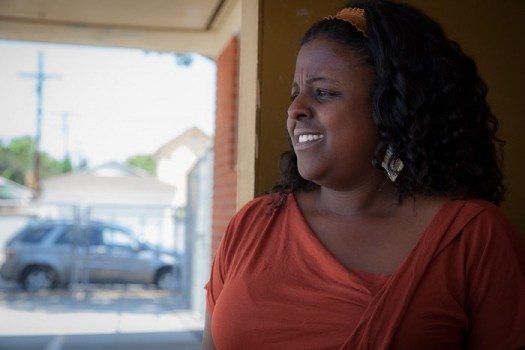

The Affordable Care Act, or Obamacare as it’s referred to, is going to dramatically change the way we live our lives and balance our budgets. The largest group of beneficiaries is working people who are currently not covered by their employer yet don’t earn enough to buy health insurance on their own, including a large number of food service and retail workers. These workers currently are forced to pay out of pocket, forgo medical treatment or rely on public health clinics.
You’d imagine these workers would be jumping for joy at the thought of a new federal law requiring their employers to help them meet a critical human need. Unfortunately, there is little recourse for these workers for the next two years. While most of the healthcare dialogue has revolved around the individual requirement, the recent announcement that the employer mandate will be pushed back until 2015 has quietly fallen off the radar.
A specter is haunting Detroit — the specter of the Koch Brothers’ toxic brand of unregulated corporatism, as embodied in a cloud bank of pollution that recently blackened the Motor City’s horizon. Abby Zimet, writing in Common Dreams, describes the event as captured by a
[m]ind-boggling video of a billowing, high-carbon, high-sulfur cloud from the mountain of petroleum coke – waste from Canadian tar sands shipped from Alberta to Detroit, and the dirtiest potential energy source ever – illegally stored by the Koch Brothers along the Detroit River. Produced by Marathon Refinery but owned by Koch Carbon, the pet-coke piles have for months been producing “fugitive dust” – i.e.: thick black crud – that blankets the homes of outraged residents and lawmakers; analysis shows the dust contains elevated levels of lead, sulfur, zinc and the likely carcinogenic vanadium.
As we noted here last year,
» Read more about: Koch Brothers’ Huge Coke Cloud Darkens Detroit »


 Instead of spending August on the beach, corporate lobbyists are readying arguments for when Congress returns in September about why corporate taxes should be lowered.
Instead of spending August on the beach, corporate lobbyists are readying arguments for when Congress returns in September about why corporate taxes should be lowered.
But they’re lies. You need to know why so you can spread the truth.
Lie #1: U.S. corporate tax rates are higher than the tax rates of other big economies. Wrong. After deductions and tax credits, the average corporate tax rate in the U.S. is lower. According to the Congressional Research Service, the United States has an effective corporate tax rate of 27.1 percent, compared to an average of 27.7 percent in the other large economies of the world.
Lie #2: U.S. corporations need lower taxes in order to make investments in new jobs. Wrong again. Corporations are sitting on almost $2 trillion of cash they don’t know what to do with. The 1,000 largest U.S. corporations alone are hoarding almost $1 trillion.
» Read more about: Corporations to Congress: Cut Our Taxes Now! »


 For several weeks, BART management has run a sophisticated media campaign telling the public that the lack of real progress in negotiations is solely the fault of the unions’ unreasonable and uncompromising economic demands.
For several weeks, BART management has run a sophisticated media campaign telling the public that the lack of real progress in negotiations is solely the fault of the unions’ unreasonable and uncompromising economic demands.
When it comes to wages and benefits, however, management has presented a highly misleading picture: it has failed to mention the enormous concessions that BART workers accepted in 2009 at the depth of the economic recession. BART President Thomas Blalock stated that he was “extremely pleased” with that cost-cutting agreement. BART employees were much less pleased, of course, but they recognized the need for significant sacrifice in the dismal economy.
Under the guidance of their highly paid, out-of-state chief negotiator, Thomas Hock, BART management is misrepresenting key economic and safety issues. Hock has an outstanding reputation for driving down employees’ wages and benefits, but a dismal one for resolving disputes without disruptive strikes.
» Read more about: Why Is It Always ‘Safety Last’ at BART? »
Today’s employment figures show that 162,000 jobs were added to U.S. payrolls last month – enough, when combined with the number of people simply dropping out of the work force altogether, to tick down the national unemployment rate to 7.4 percent. But these gains hardly met analysts’ expectations of 185,000 employees being added to American payrolls in July. Most of the new jobs were in the low-wage-paying restaurant and retail sectors.
This last detail comes just as fast-food workers have been staging one-day strikes to protest their miserable existences as low-wage earners and to demand the minimum-wage be doubled to $15 per hour. The strikers’ actions met with condescending sneers from the usual quarters of conservative punditry. Wall Street speakerphone and Fox News business seer Neil Cavuto laid on an especially thick heaping of scorn.
“It’s like jobs aren’t enough these days,” harrumphed Cavuto.
» Read more about: Neil Cavuto Remembers When He Held a Job Once »


President Obama took yet another stab Tuesday at boosting the economy, offering congressional Republicans a cut in the corporate tax rate in return for a $50 billion investment in sagging U.S. infrastructure. That the GOP immediately rejected the deal should come as no surprise. But Republicans should at least be made to stipulate where they think investment in the United States is going to come from.
Conservatives’ stock answer is that if we just lift regulations and cut taxes on business, if we only get rid of unions and the minimum wage, then corporate investment will flow like a mighty stream. There are all kinds of good reasons to dispute this, but a study by three economists provides proof positive that it is sheer hooey.
In late April, John Asker and Alexander Ljungqvist of NYU’s Stern School of Business and the National Bureau of Economic Research and Joan Farre-Mensa of Harvard Business School published a study looking at one of the U.S.
» Read more about: America’s Investment Gap is Strangling Its Economy »


Endless debates over austerity vs. stimulus policies agitate governments. Which is “the correct” one to escape global capitalism’s ongoing crisis? The debates proceed as if official policies were key to ending crises. But the politicians’ fights over policies are mostly distractions from the main events: how crises usually end themselves and their immense social costs.
In the U.S., Republicans promote policies that prioritize national debts as “the” economic problem. Enlarged debts, they assert, prevent businesses from making investments that “create jobs.” Republicans therefore demand austerity policies – chiefly cutting government spending – to reduce national debts and thereby exit crises. Democrats – at least those who still differ from Republicans – promote policies that prioritize reducing unemployment. They want increased government stimulus spending even if national debts rise. That spending, they argue, will boost demands for goods and services, thereby creating jobs and pulling the economy out of crisis.


(They drive our trains and buses, teach our children, repair our roads and protect our safety. Public employees perform these and countless other jobs, although they remain mostly off the radar of the public they serve. With our new “Pro Publica” series, Frying Pan News presents the lives of these men and women front and center.)
After 10 years of marriage, Aisha Blanchard-Young’s husband is still shocked by the amount of time Aisha spends in her kindergarten classroom teaching. He jokes that if someone really wants to find out what it is like to be a teacher, they should talk to a teacher’s spouse. As a quality control technician for a stadium electronics company, he never has to take his work home. Aisha isn’t as lucky.
During the school year Aisha gets up at five in the morning to ready herself and the couple’s two boys (one 5 and one 2) for the day.
» Read more about: Aisha Blanchard-Young: A Passion for Teaching »


In the Food Network’s popular show, Restaurant Impossible, star Robert Irvine visits a failing restaurant that is poorly managed, has depressing décor, and which serves inedible food. He and his staff completely transform the business, and by show’s end there are hugs and smiles all around. Many of the restaurants Irvine visits are completely unsanitary. In a recent episode, Irvine told the owners that their place had “over 500 health code violations.” He said the kitchen was so disgusting that he would not even try the food, and told diners that they were eating at their own risk.
But neither Irvine nor the Food Network reported the establishment to the local health department. Nor did they ask how such a “disgusting” kitchen could have gone uninspected by city officials, or raise alarms as to the likelihood there were many other restaurants in the city also endangering their customers’ health.
» Read more about: Why ‘Restaurant Impossible’ Blows the Wrong Whistle »